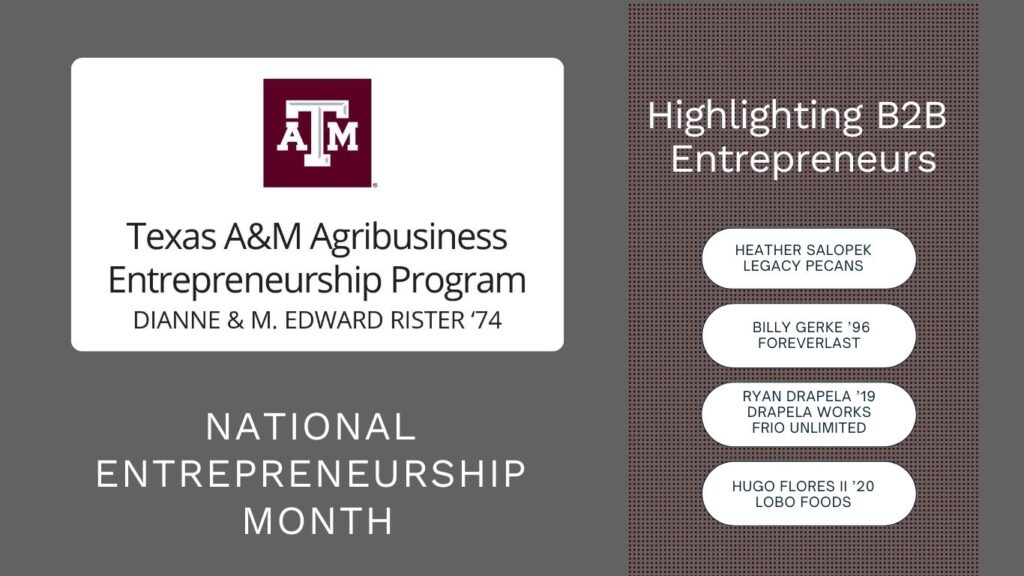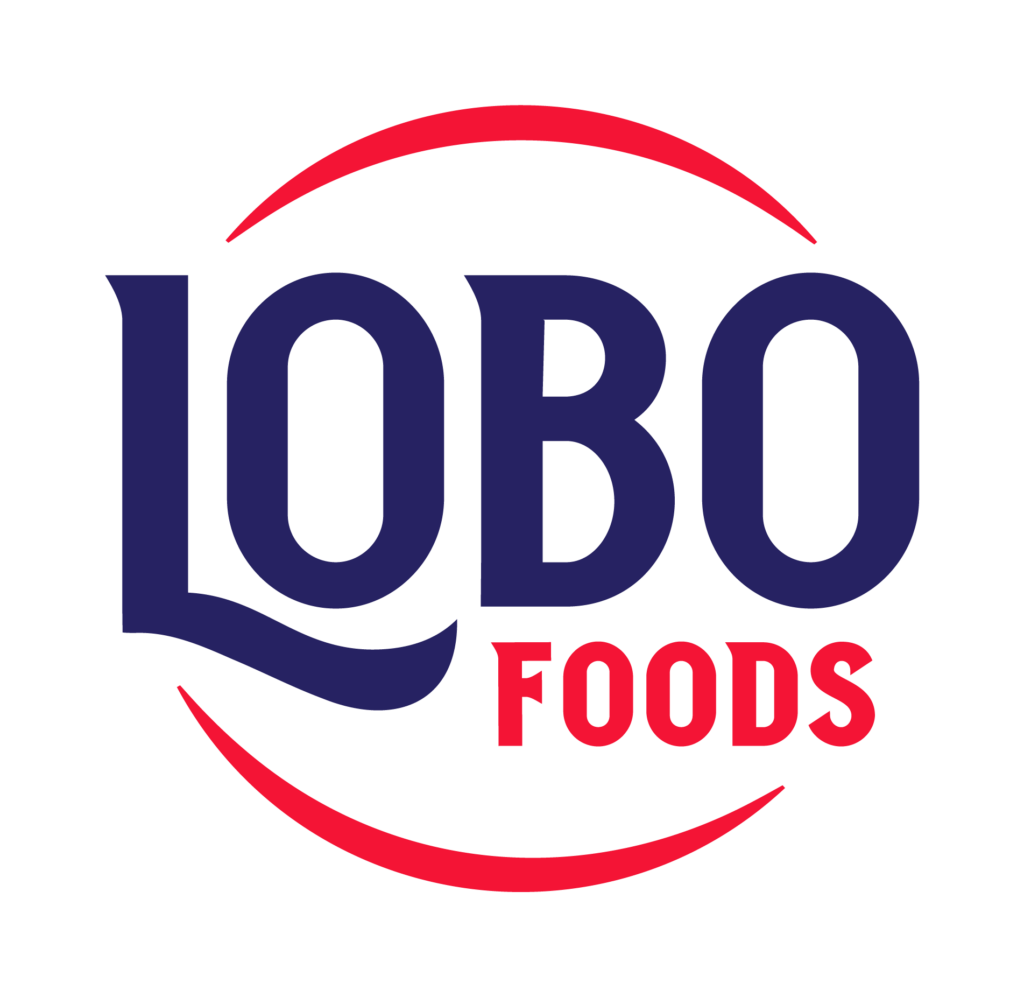Embracing the B2B Model: Recognizing Opportunities for Entrepreneurs
As we celebrate National Entrepreneurship Month, it's the perfect time to spotlight the B2B (business-to-business) model, an effective approach that opens doors for ambitious entrepreneurs who want to make an impact on a larger scale. B2B businesses supply products, services, or expertise to other companies rather than directly to consumers (B2C). This model has unique advantages as businesses actively seek innovative solutions to streamline processes, optimize performance, and achieve growth.

For entrepreneurs, this model offers vast potential for scaling and collaboration. Here are strategies for navigating and succeeding with a B2B approach, including insights from several AGEC 425 “Survivors.”
Understanding the B2B Landscape and Building Relationships
The B2B marketplace is diverse, covering various sectors. Unlike B2C, where businesses market individual consumers, B2B requires a focus on relationships with decision-makers in organizations who prioritize ROI, efficiency, and long-term value. Relationships and trust are central in B2B.
Tip: Consider attending networking events, industry conferences, and leveraging professional contacts during National Entrepreneurship Month to connect with potential clients and partners.

Heather Salopek '11, Founder & Owner, Legacy Pecans: “Entrepreneurship is not just about ideas. It’s about relationships. The relationships you build along the way can be the difference between success and failure. Your network is your net worth. The relationships you cultivate can open doors and drive success. Having celebrated our ten-year anniversary this year, Legacy Pecans’ B2B corporate gifting has provided an important revenue stream for the company, by partnering with large corporations to provide branded and customized gifts for their valued customers and employees.”
Optimizing B2B Sales and Marketing
Selling to businesses often involves a longer and more complex sales process. It may involve multiple stakeholders, including end-users, procurement, and senior decision-makers. An effective sales strategy combines value communication, consistent follow-up, and alignment with client-specific goals.
Tip: Invest in a CRM (Customer Relationship Management) system to track interactions and nurture leads to ensure opportunities are not lost. Pay attention to who makes the decisions and develop key strategies, including using your network, to get in the door.
Billy Gerke '96, Founder & Owner, ForEverlast: "In an ever-changing marketplace, we must embrace the new methods of communications, as well as lean on those that have been successful in our past to keep in contact with current and potential customers.”
Gerke was a Prof-for-a-Day in 2021 with the Rister '74 Agribusiness Entrepreneurship Program. View his presentation here.

Leveraging Digital Platforms for B2B Growth
With advancements in technology, digital platforms have become critical for B2B entrepreneurs. Web pages and social media sites can connect startups with potential clients and partners, as well as showcase the product or service offered.
Tip: Participate in B2B forums to establish a presence in your niche. Consistent content creation can help position your business’s brand as a credible brand.

At Drapela Woodworks and Frio Unlimited, embracing digital platforms has allowed us to extend our reach and deepen our impact in the B2B space. By leveraging technology to showcase our craftsmanship and reliability, we provide partners with easy access to quality American-made products. Digital content creation enables us to nurture the relationship side of B2B selling and establishes trust and credibility beyond what in-person relationships can do.” Ryan Drapela '19 founded Drapela Works when he was a student at Texas A&M. His AGEC 425 business project focused on expanding this business.
As an example, Drapela Works leverages its YouTube Channel, https://www.youtube.com/@cutting-it-close, to nurture B2B clients.
Navigating Financial and Operational Challenges
While the B2B model offers high-revenue potential given the ability to scale, it requires significant resources and infrastructure, including product development and customer support. Cash flow can also be a challenge, as many B2B clients pay on a delayed schedule (e.g., 30-day, 60-day, etc.).
Tip: Secure initial funding and consider alternative financing options, such as invoicing (which requires a designated system and personnel), to maintain cash flow. Build a team with strong expertise in project management, customer service, and business development to sustain growth.
Aggie former student Hugo Flores, II '20, who returned to work with his family business, Lobo Foods, after graduating from Texas A&M with a degree in Agricultural Economics and a minor in Agribusiness Entrepreneurship provided an additional tip they have followed as a B2B provider. “Leasing assets for your business can mitigate large expenses early on as you await delayed cash flows.”

We salute B2B owners who are AGEC 425 Survivors!

